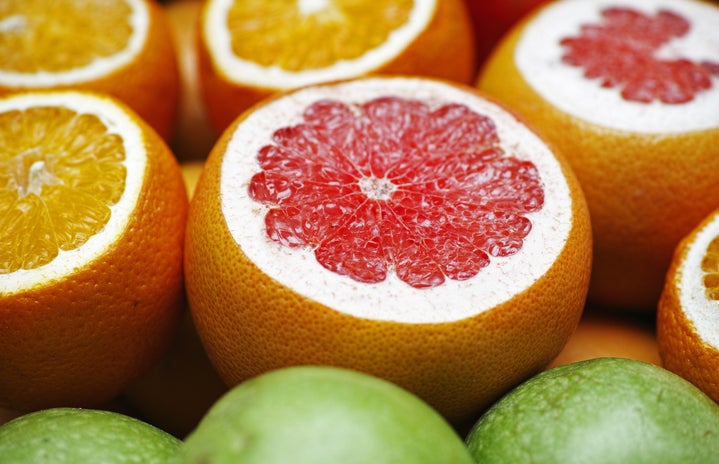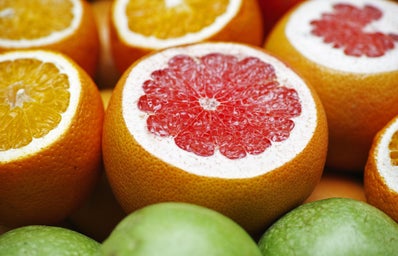One of the most controversial topics in nutrition currently is the concept of superfoods. According to Wikipedia, the definition of a superfood is “a is a marketing term used to describe foods with supposed health benefits.” The term “superfood” is usually used to describe nutrient-rich foods that are considered to be beneficial for human health.
Apart from claiming to have outstanding health benefits in common, superfoods also share something else; their very high price points and arguably their not very appealing taste to most individuals. While some say that superfoods are beneficial, others say that these claims have not been proven. Here are five superfoods, which had vast claims but fell short when it came to justifying them.
1. Wheatgrass
Wheatgrass is a very good source of vitamin E, vitamin A, vitamin C and dietary fibre, all of which are alleviative to human health. However, when viewed in comparison to other greens such as broccoli and spinach, wheatgrass falls short in its claims of being more “super” than the latter two. Wheatgrass has alleged cancer prevention qualities but there is not much evidence to support this allegation. According to the American Cancer Society, “There have been almost no clinical studies in humans to support claims made for wheatgrass or wheatgrass diet programs. One very small study suggested that it may help people with colitis, a bowel problem.”
2. Goji Berries
Sold as juice or in dried form, goji berries are used in Chinese medicines and are claimed to aid the immune system, while there is very little evidence showing their benefits. The reality is that goji berries are exceptionally high in antioxidants and some studies have shown that they prevent vision degradation due to aging. There is also some data that compounds found in these berries cause the liver to break down certain types of drugs faster than usual, which can be dangerous if they are taken without a doctor’s advice.
3. Chia Seeds
Native to central and southern Mexico and Guatemala, chia seeds can be eaten in seed or in powder form. Chia seeds have a very high omega-3 content and are usually grown in order to extract these omega-3 oils. There are many health claims attached to chia seeds but none have sufficient evidence. While omega-3’s are considered good for the heart, there is insufficient proof for other claimed benefits such as aid in inflammation and decrease in disease risk factors.
4. Green Tea
Unlike black tea, green tea is made from unfermented tealeaves, which is one of the reasons why it contains more antioxidants. Green tea has been shown as a miracle cure for everything from weight loss to cancer prevention, whilst having very little evidence to back up these claims. Of course, a cup of green tea is better than coffee with half-and-half but if anybody was thinking about skipping the gym just because they drank a cup or two, they might be a little disappointed.
5. Quinoa
There are many reasons why quinoa makes superfood lists, as it does have quite a high protein content for a plant-based food. But if it is protein that you want, eating beans will benefit you much more than quinoa. Quinoa is comprised of 70 percent carbohydrates and 14 percent protein, making it primarily a source of carbohydrates. It also contains anti-nutrients such as phytic acid, which may cause indigestion in some.
Can all these claims be true or are they only made for marketing purposes? Though some of the superfoods listed above are not your worst enemy and will beat a pack of chips when it comes to nutrition, it is safe to say that most aren’t miracles that do what a healthy diet cannot achieve. Also, promoting a superfood as a miracle cure or a “one-size-fits-all” health benefit is possibly not the best approach since dietary needs vary from person to person. At the end of the day, it is up to you to decide what you would like to eat and what makes you feel energised and healthy, which is what a healthy diet should be about.
Sources:
http://www.oxforddictionaries.com/definition/english/superfood
http://nutritiondata.self.com/facts/custom/900675/2
http://www.eurekaselect.com/85367/article
https://www.ncbi.nlm.nih.gov/pubmed/22830971
http://www.nhs.uk/livewell/superfoods/pages/is-green-tea-a-superfood.aspx
http://en.wikipedia.org/wiki/List_of_superfoods#Quinoa
Images obtained from:
http://hempadvantage.com/tag/superfood/
http://consciouslifenews.com/better-wheatgrass-raw-veggie-juice-sprouts/
http://www.bowlofdelicious.com/2014/03/29/strawberry-chia-seed-pudding/
http://eclecticrecipes.com/black-bean-mango-quinoa-salad
http://www.saudedica.com.br/goji-berry/
http://www.saudedica.com.br/goji-berry/

